In the middle of the night, you wake up. Your heart is pounding, and you’re surrounded by darkness and fear. You’ve just had a nightmare, but it takes you a while to realize that everything is actually okay and it was all in your mind.
Although it was just a nightmare, you tend to feel unsettled for quite a while after. This happens for both adults and children. Although, when you’re an adult, there is no one to check for monsters underneath your bed. Is it even possible for us to avoid having nightmares, or are we stuck with them forever?

Learning About Nightmare Disorder And If You’re Dealing With a Sleep Disorder
Let’s take it back to when we were kids. Did you know that nightmares are thought to be more frequent for children? Is this an issue? According to doctors, the occasional nightmare for a child is considered to be very reasonable, and it’s not a problem. The problems start to show when these nightmares are a lot more frequent and then end up affecting you throughout the day. You may not be aware that there is something called nightmare disorder. What does this mean? Let’s find out.
Nightmare disorder is a sleep disorder. This seems to happen to people who have experienced trauma, stress, or, in some cases, from the use of specific drugs. If you have this, is there even a way to treat it? There are medications and therapies you can use to work through it. These treatments have the backing of the American Academy of Sleep Medicine. They conducted a thorough study of the treatments of nightmare disorders in 2010. Even though they did this research, nightmares are quite complicated and hard to understand.
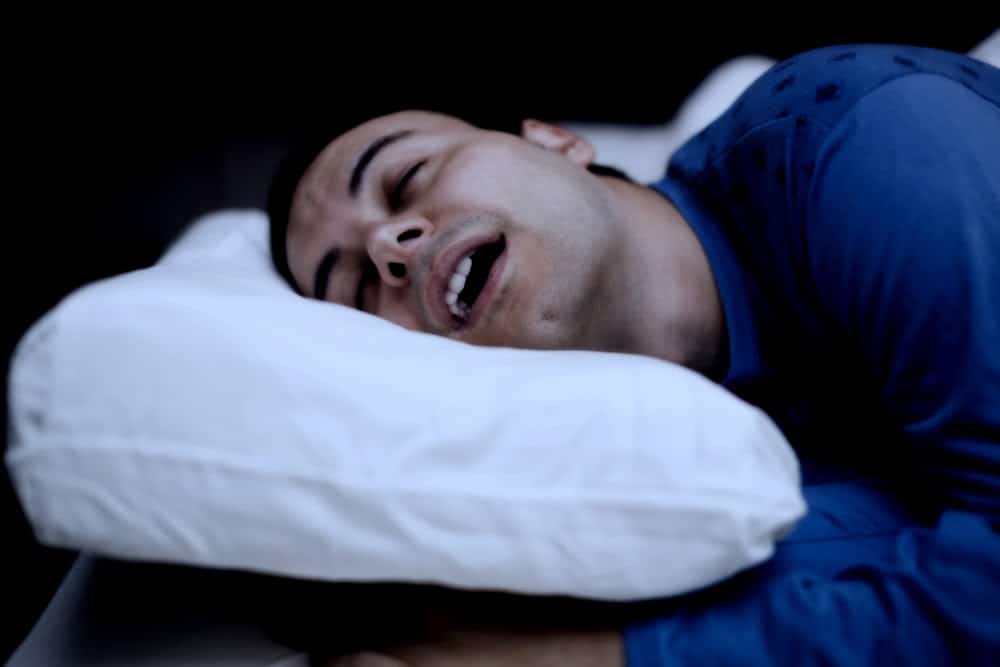
Dreaming In Your REM Sleep And Exceeding Real-Life Expectations
Researchers are still finding it hard to understand nightmares, according to Dr Rachel Salas, who is an expert on sleep disorders. So what do we know despite it being hard to analyze and research what nightmares mean to us? We know that people actually have different types of nightmares, depending on what point they are in their sleep cycle. Most of our dreams tend to take place during our REM sleep. This sleep phase is also known as rapid eye movement sleep.
Dr. Salas explained that this part of our sleep cycle creates dreams in which we do things that we wouldn’t usually be able to do in real life. An example of this would be flying. The scans that have been done on the brains of people in REM sleep had some exciting results. It shows that when you are in REM sleep, the activity happening in your brain is very similar to what is happening in the mind of someone awake. REM sleep usually occurs around 90 minutes after you have fallen asleep. What are the signs of REM sleep?

Energy Levels Start To Increase, But Say Goodbye To Muscle Activity
Your breathing speed will increase as well as your heart rate. Not only that, but your blood pressure will also rise. It almost seems that your body is ready to get up and get going, but thanks to our smart bodies – that should not happen. Our bodies have evolved to protect us from acting out our dreams; for sleepwalkers, this is a whole other story for another time, but how does our body prevent us from moving in our dreams? Dr. Salas explains that in REM sleep, our muscle activity decreases.
Without this decrease in muscle activity, we would be acting out our dreams, and if it was a nightmare – that could end very badly. Now that you understand more about sleep and dreams, do we hold a switch in our bodies to turn off unwanted nightmares? The research in this area is limited, but studies have looked into people who have the ability to lucid dream. This means that they can be aware of the fact that they are in a nightmare and then are able to control what happens inside that dream.

The Legend Of Lucid Dreaming
Researchers are hopeful that these lucid dream masters are going to be able to give them the answer to being able to switch off those nightmares for good so that we can finally rest peacefully at night instead of waking up in sweats. Lucid dreaming is very real, but there still needs to be more trials to establish lucid dreaming therapy as proper medical practice. Research that has been done shows that this could be the solution for people suffering from constant nightmares.
Are you curious about sleep and your nightmares? You may want to give lucid dreaming a try. One strategy to attain lucid dreaming is called “wake back to bed.” Your first step is to set the alarm for 30 minutes before the time, and you would usually wake up. When the alarm sounds, instead of getting up, you should focus on having a lucid dream as you slip back into your sleep. There obviously is no guarantee that this will lead you into a lucid dream, but it seems to raise your chances of attaining this type of dream.

How Common Is Lucid Dreaming? Does Lucid Dreaming Hold The Key To Nightmares?
The unfortunate thing is that lucid dreams aren’t a regular occurrence. It’s thought that the average person will have less than ten lucid dreams throughout their lives, so are there other solutions to putting an end to our nightmares? The odd nightmare here or there is subtle, but if they’re starting to impact your sleep routine or perhaps you’ve injured yourself during a nightmare, you should take it to a medical professional and be referred to a sleep specialist who could help you deal with this issue.
Lucid dreaming would essentially hold the key to putting an end to nightmares as you would know to realize that it is all just a dream, and you could then alter what was happening in the dream or simply wake yourself up. There have been some studies on people who have been able to turn their nightmare into a dream that was a lot nicer. When you’re in a lucid nightmare, you have the chance to remove your fear by acknowledging that you aren’t actually in danger.

What To Do Before Consulting A Sleep Specialist
If your nightmares aren’t that severe but you’ve noticed an increase in them, there are plenty of things to try before consulting a sleep specialist. You’ll probably see an increase in nightmares if you are going through a stressful time in your life.
A solution to this could be talking to your friends and family about what you’re going through to take that weight off your chest. You could also start to eliminate the things that cause you to stress or even take up meditating before you go to sleep to ease your mind.

Get Up And Get Moving
Exercising probably sounds like a repeated thing you hear over and over again. However, it is true when people say it changes your life for the better. Yet another solution for getting rid of adverse sleep is to get active. An exercise is a wonderful tool for all areas of your life, and it’s incredible what it can do for your mind as well. Try and get yourself into a regular exercise routine and focus specifically on cardio workouts.
This essentially should help you sleep better at night and may even eliminate your dreams. Just 30 minutes of exercise each day could change your life and improve your sleep, even if you aren’t suffering from nightmares. After you get a better sleep schedule, you will notice your overall health improve as well.
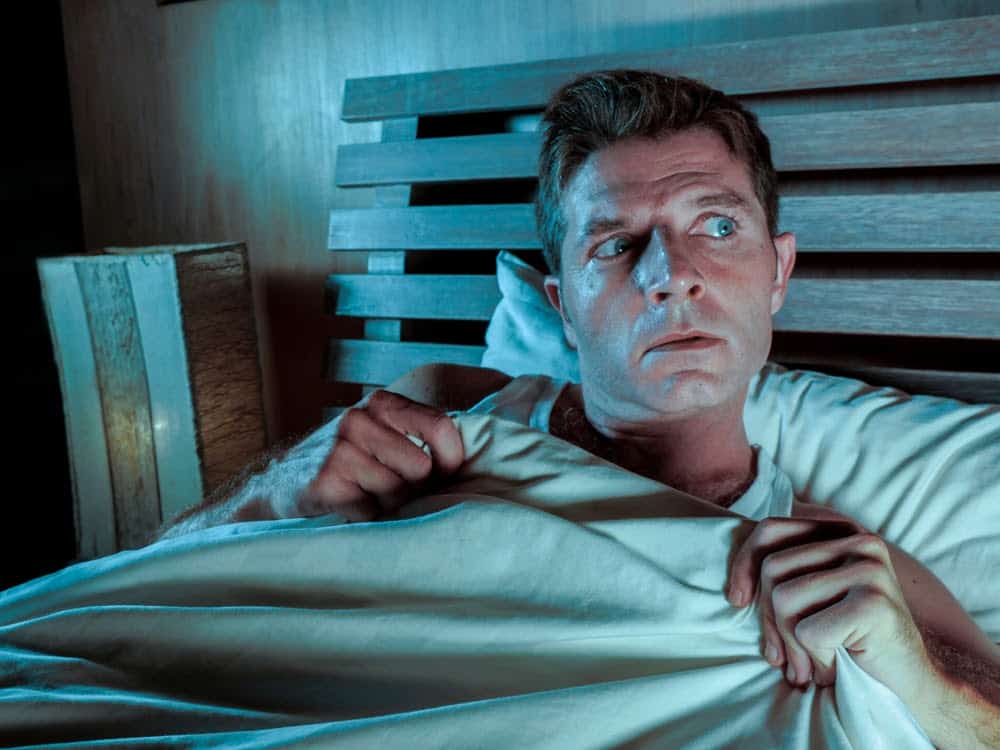
Nightmares Could Be A Side Effect
Did you know that your nightmares could be a side effect of a medication that you’re currently taking? If you have started taking medication and noticed an increase in your nightmares, you should contact your doctor for an alternative.
While we tend to group all nightmares into one category, there is a variety of different types of nightmares that you could experience. These include general nightmares, night terrors, recurring nightmares, and sleep paralysis.
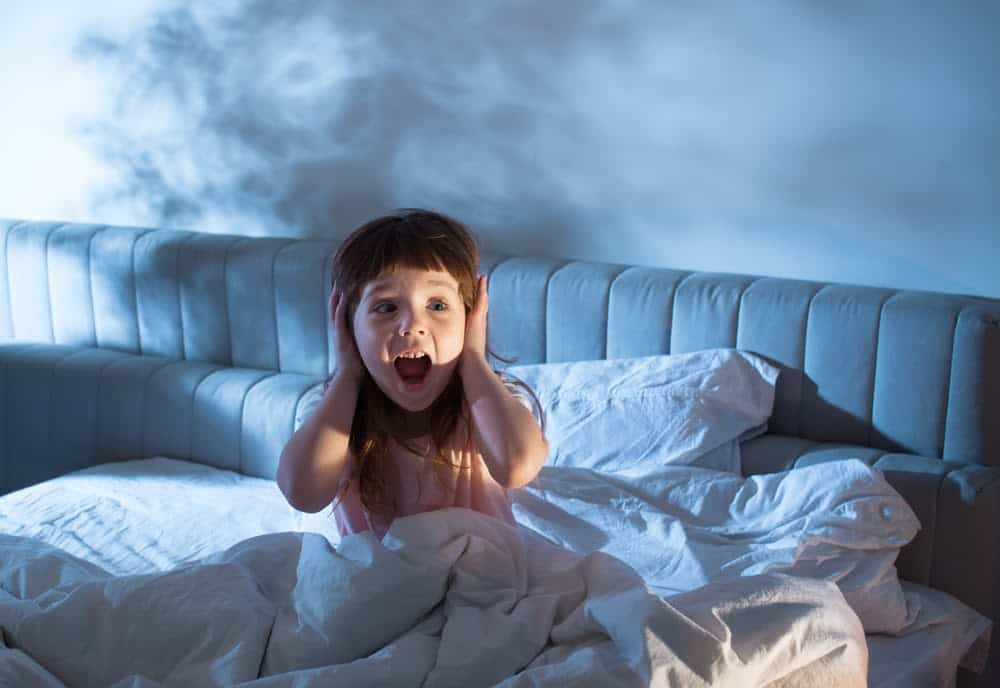
The Difference Between Nightmares And Night Terrors
Our general nightmares happen during REM sleep, and you’ll be able to wake up and remember what happened in the nightmare in clear detail. What happens when it’s something a lot scarier like a night terror or a nightmare that keeps coming back? How do you know the difference between a general nightmare and a night terror? If you’ve woken up and are very scared, it may have just been a nightmare, but the difference is that if it’s a night terror, you would be confused and unable to communicate.
Are night terrors dangerous? A person who is dealing with night terrors doesn’t respond to voices and also is very hard to wake them up properly. The effects of a night terror last about 15 minutes, and when they wake up the next morning, they generally don’t remember what happened. Night terrors are different from nightmares because of when they happen in your sleep cycle. They will occur during your deep sleep, whereas nightmares happen in your REM sleep. Are night terrors dangerous for the person who is experiencing them?

Something Is Unresolved In Your Life
Recurring nightmares most likely mean that there is something in your life that is causing you stress, and you haven’t dealt with it. Until the problems are solved, this nightmare will likely continue to happen. It can also be to do with trauma in your life.
If you have experienced trauma in the past or are currently going through one, this could provide the reason for your experiencing these recurring nightmares. You could talk to someone or seek professional help to work through this.
Dreaded, reoccurring nightmares are actually harmless, even though it may be scary for the person experiencing it or the person who is watching them have a night terror. Unless the person starts to sleepwalk during their night terrors, you shouldn’t be too concerned. Next up are recurring nightmares. It’s pretty self-explanatory – they are the same nightmare that will happen to you over and over. These dreams tend to cause much anxiety in the person who is experiencing them because of their inability to escape from the nightmare.
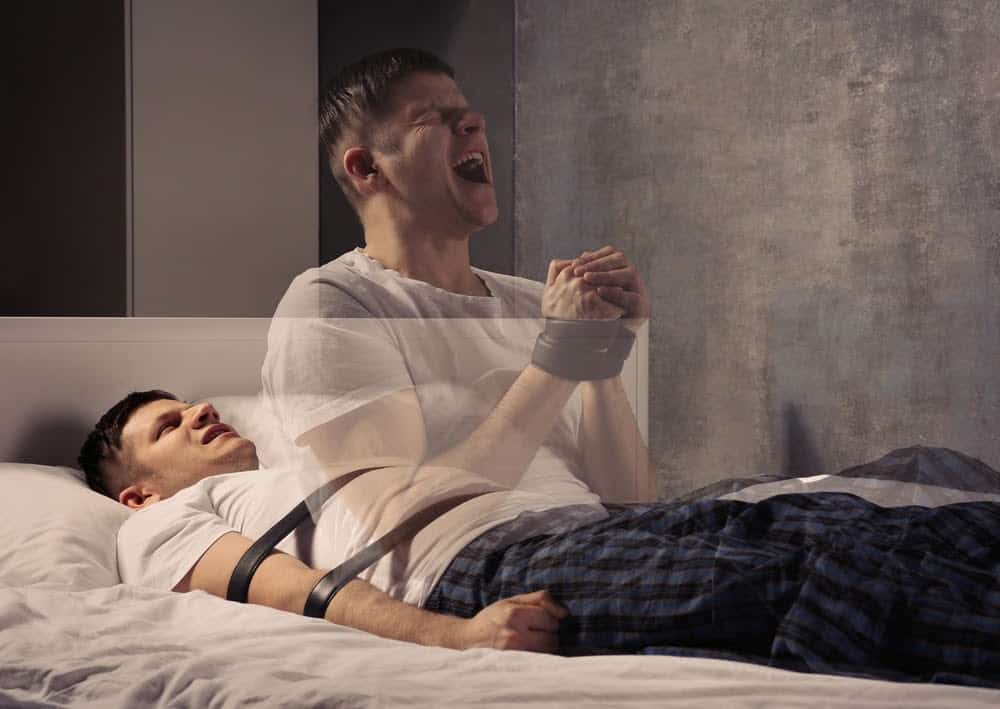
Unwanted Sleep Paralysis And The Cause of It
Beyond this and possibly one of the scariest to experience is sleep paralysis. This is when you are aware of being awake, but your body isn’t moving. The frightening thing is what happens during this sleep paralysis to the dreamer. People often report being able to hear, feel, or see things that are actually not there, which creates a deep fear inside of them. Some people also experience physical sensations such as chest pressure or even feel like they are being choked.
The good thing is that this tends only to last a few minutes, and then the person can move and switch on the light. This can happen to a person often, or it could only be a one-time thing for that person. There are some old wives’ tales about why this happens. Over the centuries in notes, sleep paralysis has been a hot topic. People have tried to explain the cause of it, and they all make it sound quite terrifying. Some people believe that this is caused by an evil presence or unseen night demons from ancient times. However, there has to be a scientific reason for sleep paralysis, right? Some people with sleep apnea or narcolepsy have it, but it is common among people who don’t have diagnosed sleep conditions. Oftentimes, changes in sleep habits can help correct the paralysis.

The Most Common Nightmares Including Losing Teeth
So what are the most common nightmares that people around the world experience, and what is the meaning behind them? One of the most common nightmares that people have is about their teeth falling out. This can be quite an unsettling one because that would be terrible in real life. When you break it down, teeth falling out in dreams could be a reflection of anxieties that you are having in real life about your appearance. It could also have something to do with the way that you think others are thinking about you.
If people dream about teeth falling out, it could be a result of emotions such as embarrassment, feeling rejected, or perhaps just not feeling your best and your confidence being knocked down a bit. What else could these dreams about teeth mean? When you think about the purpose of teeth, they are being used to bite and chew our food. Some people believe that dreams about losing your teeth may correlate to your feelings of losing power or due to self-confidence issues in real life.

Are You Running Away From Your Stress?
Stress can be a silent killer. People deal with stress because of work matters, extended family disagreements, financial problems, health reasons, and so much more. Another widespread nightmare is one where you are being chased by someone or even something. This dream is easily decoded and could be because you are running away from something that is causing you anxiety in the real world.
This dream is showing you that you are just running away from the issue or trying to avoid it and that it’s something you need to deal with head-on instead. The thing chasing you could also represent an aspect of yourself, such as feelings of anger or jealousy. Whatever is subconsciously bothering you, it might be time to face it and actually talk about it out loud so you can sleep better at night.

When You Can’t Find A Bathroom In Your Dream
Next up is the one we all fear – not being able to find a toilet or a bathroom. If you are dreaming about this, it could mean that you are struggling to express your needs in your life outside of the dream. It could also show that your needs are not being met. It could be because you are putting other people before yourself and, therefore, not getting what you need from life. It could also mean that you need more privacy in your life and also need to get on that self-care train and look after yourself for a change.
However, most people wake up when they truly have to go to the bathroom at night. If you actually relieve yourself while in your dream, because you thought it was real, then you should express this to your doctor. You might have a weak bladder, and this issue could be hereditary.

When You Dream About Being Naked
This next common dream is one that pops up in movies and sometimes in our nightmares too – it’s the dream about being naked in public such as on stage. This dream is horrific and exposes us – so what could be causing us to feel this vulnerable in our nightmare?
Dreaming about being naked possibly symbolizes that you are not finding yourself, feelings of uncertainty, or even being wrongly accused of something. There’s also the flip side of this dream when you see a naked person and don’t like it…

The Failing An Exam Dream
When you’re not the naked person but someone else is, it could be that you are worried about exposing this person for whatever reason. It could be a secret they have that you know or that you maybe said something about them, and you’re going to get caught out. The next nightmare on the list is one that seems to happen throughout our lives, even if it’s been years since we were at school and writing exams. It’s the horrible exam dream when we wake up thinking we’ve failed a crucial test.
Did you know that 1 in 5 people experience this dream in their lives? There are a few variations of this nightmare. Some people may dream that they have failed an essential exam, and some people also dream that they have entirely missed the test or forgotten to study. Both of these are seriously alarming to the person in the nightmare, and it seems like there’s nothing you can do. It’s always a real relief to wake up from this nightmare and know that it didn’t actually happen and that you didn’t fail that all-important test.

Dreams Are A Reflection Of Real Life
Exam dreams could be reflecting your lack of confidence then or maybe even if you are struggling to get to where you want to be in life. Work through these issues, and you’ll be able to pass that test with flying colors in your next nightmare. This next one is relatively common and could be perceived as being a dream instead of a nightmare in some cases. It’s a dream about flying. You’ll know it’s a nightmare, though if you are having a tough time leaving the ground in the dream.
Other people might have flashback dreams where they are in school well after they graduated. While these types of dreams might not be nightmares per se, they still are a reflection of real life. Oftentimes, the dreams can be recurring about the same situation, or with the same people.
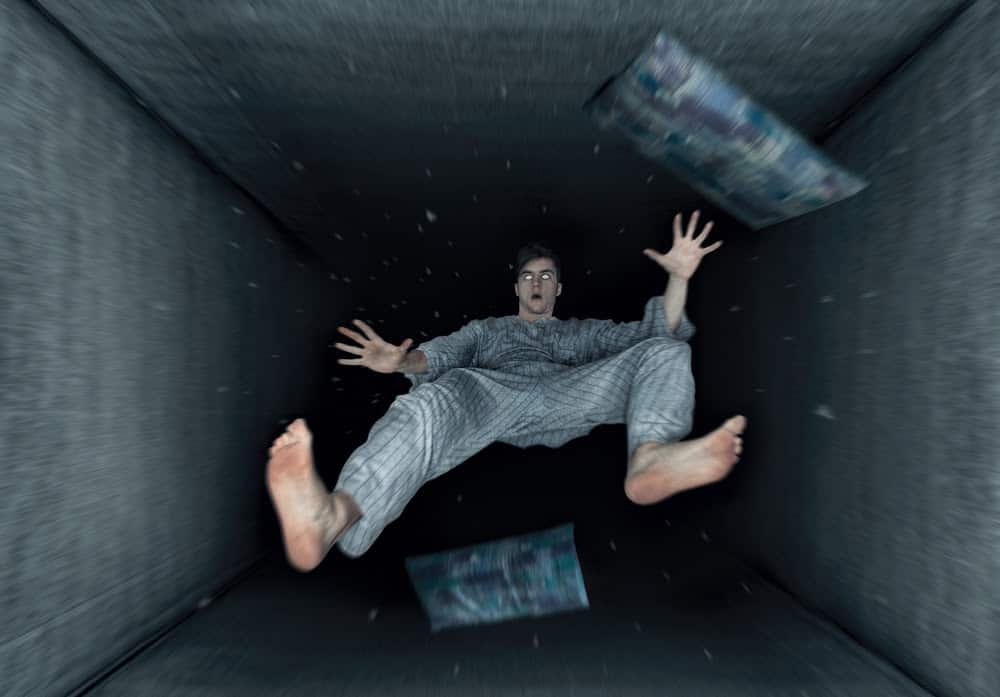
Flying — Or Falling
A nightmare about flying is suggestive of someone or something in your life that is preventing you from being able to take the next step in an aspect of your life. There is also the alternative dream when you are actually just too afraid to fly in your nightmare. This means that you could be struggling with the tasks you have set out for yourself or the goals that you want to achieve. Also, if you are alone in your dream and having trouble flying, this again relates to a lack of confidence you are experiencing.
Last but not least of the frequent nightmares is that dreaded falling feeling. When you are in your nightmare, and you fall and feel an overwhelming sense of fear, this is a representation of insecurity and anxiety in your life. If you fall into a dream and actually enjoy the feeling of it, it shows that you are not afraid of the changes that are happening, and you are embracing them. Many of these dream experiences give you an insight into the struggles you are going through in the real world.

Are Nightmares Caused By The Same Thing For Children And Adults? Keep A Dream Journal
These nightmares are generally so vivid and bright that the children who have them can recall them many years later. When a specific sleep survey was conducted with adults, 75 percent of them said that they remembered a nightmare from their childhood. Are the causes of nightmares the same for children and adults? Sometimes, yes. A team of researchers had 60 children who were between the ages of 6 and 11. There was also one parent for each child who took part in the study.
Two-thirds of the children who were being used in the study were boys. The assessments from the study took place in their home or local library. The parents were asked to complete a questionnaire, and the children spent five minutes on an exercycle. After this, their heart rate variability was measured. The kids were then asked about the frequency with which they experienced nightmares and how scary they were. They also did a test that measured their levels of anxiety.
Keeping a dream journal could be an excellent way to work through your issues and see if there are differences and whether it was a positive or a negative such as with the falling dreams. Are you afraid of falling, or are you enjoying the feeling of it? If you’re a parent and are wondering how to help your child with any nightmares, they have been experiencing, then this will be very interesting for you to read. The American Academy of Sleep Medicine states that children aged between five and ten are prone to having nightmares.

A History Of Trauma Or Anxiety
The parents filled in questionnaires relating to their children’s sleep habits and their child’s history with trauma or anxiety. Fifty-eight percent of the children said they didn’t have nightmares. 23.3 percent said they had one more a month. Eleven children said they had three nightmares or more within the time frame of a month. Between these groups, there weren’t any noticeable differences between those who had trauma in their history or anxiety.
Even though trauma history and anxiety didn’t play a role in the frequency of nightmares in children, there was something it did impact. It seemed to influence how scary the nightmares were for the children. The children who had increased anxiety reported more distressing nightmares in the study, and this, coupled with trauma history, could lead the child to be more susceptible to experiencing sleep terrors, which will go away later in life.

What Could Cause Your Child’s Nightmares And Will They Grow Out Of It?
If your child is having nightmares, you can try and figure out what might have caused it. It could be something that happened to them during the day, or it may even be related to a fear that your child has. What could these fears and worries include for them? If your child is starting school, this is a big change, and it could be scaring them. They are leaving the comfort of home, and this stress and anxiety could bring on nightmares. Another thing that could cause them to have nightmares is a death in the family.
Your child may also be experiencing fear related to monsters. The nightmares that a child has will generally happen during the last few hours of their sleeping cycle. When it’s time to wake up, you’ll find that they tell you about the dream and might even think it was real. Slowly as your child grows in confidence and becomes more aware of how to deal with their emotions and problems, they will have fewer and fewer nightmares. Now, as a parent, how do you begin to deal with these nightmares that your little one is having?

Reassure Your Children That Everything Is Alright, But Try Not To Get Into The Bed With Them
When they wake up from their nightmare, they will be a bit traumatized by it. As a parent, the first port of call is to reassure them. You can do this by holding them to comfort them. You can also sit with them while they tell you about it. If the nightmare happens during the night, you can sit with them until they have calmed down and can get back to sleep. Having you there with them will give them a sense of security and show them that everything is going to be okay.
The one thing that you should avoid as a form of comfort for your child is to get into bed with them. The problem with this is that it might create a sleep association. They will then become dependent on you to be able to sleep, and this will create issues for them. You can instead leave both your bedroom door and that of your child open. They will then know that you are nearby and available if they need any support from you during the night. Something to also consider if they are going through a phase of nightmares is light.
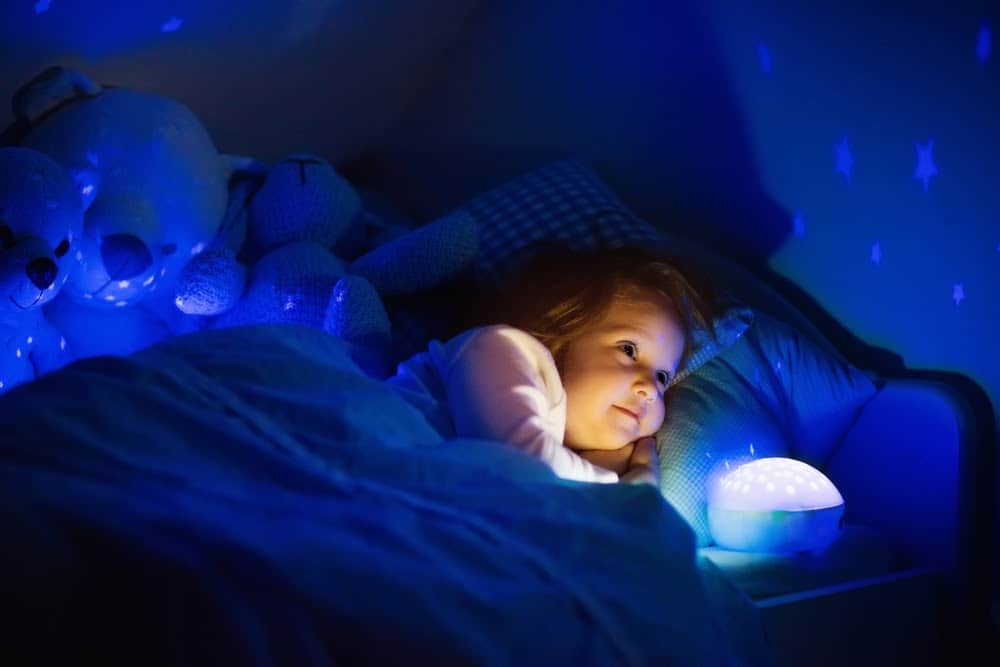
A Night Light Could Be The Solution
There are great night lights that could provide comfort to your child and make sure that it is on a very low setting so that they can still get a good night’s sleep. Having the light will provide them with a sense of security to see in their darkroom that is still the same as if the light was on — with all their belongings slightly more visible now.
You could also give them a security object. This could be something like a teddy bear. Instead of you sleeping in the bed with them, provide them with a teddy bear. This is different from a baby or a toddler though who may be in danger due to this being in their crib.

Have An Open Nightmare Dialogue
It’s essential to open up a dialogue with your kid about their nightmares. The next day you should use the opportunity to talk to them about what happened so that you, as the parent, can try and figure out what may have caused them to dream about that.
This discussion is also critical if these nightmares are happening very often. Is there anything that you can do to prevent them from having nightmares? One option is to chat with your child about any fears or worries they have during the day.

Monitor What They Are Watching On TV
Something fundamental in preventing nightmares in children is monitoring what they are watching on TV. Be very aware of what they are watching and make sure that it is appropriate for their age before allowing them to view it.
Make sure to avoid anything that they find scary on TV before they go to bed. Another tip is not to give your child anything to drink that may have caffeine in it or sugar before bedtime, as this is something that could contribute to disrupting their sleep.

Getting Proper Rest Is Important Even For Kids
One of the most important things for your child is to ensure that they are getting plenty of rest. This is, of course, very important for their overall development, but it also can help with any nightmares that they may be having.
With the correct amount of sleep, your child’s nightmare frequency can be reduced, and not only that but also the intensity of the nightmare too. Create a bedtime routine that they enjoy and look forward to, so there is a positive association with sleeping. Make sure you turn off the TV, and that includes screen time with other devices like iPads. Blue light mimics daytime light, so it will keep your children up throughout the night, much longer than they should be, which leads to a cranky child in the morning.

Is Your Environment Giving You Nightmares?
It’s not only our life circumstances that can bring on nightmares but the environment we are sleeping in as well. Did you know that heat increases your chances of having a nightmare? Well, according to Dr. Neil Stanley, it certainly does. The former chairman of the British Sleep Society says, “In order for us to get a good night’s sleep, we need to lose around 1C of our internal body temperature, which sits around 37 C.” Where do we lose this heat from when we are sleeping?
Maintaining a stable core body temperature can determine how well you sleep at night. It’s all about your body’s core temperature. This heat leaves from our head or face, which is the part of our body that is generally sticking out from beneath our duvet. He also explains that when you sleep in a room that is too warm, your body’s core temperature isn’t able to lose the heat that it needs to.
Because of this, your sleep will then be disrupted. When you reach a point of being sleep deprived, you will experience something called sleep intensity. This then results in higher brain activity. This activity is experienced in your REM sleep.

A Lack Of Sleep Increases The Intensity Of Nightmares
This lack of sleep often makes our dreams appear a lot more vividly and can also turn your dreams into nightmares. The solution is to sleep in a cooler room that is set at the right temperature to allow your body to lose heat.
Not only does it help with your nightmares, but Dr. Stanley says it will improve your snoring and conditions like sleep apnea. After keeping a journal record of your dreams and nightmares for several weeks, make an appointment with your doctor to discuss the findings as well as future diagnosis and treatment of sleep conditions.

An Alternative Way To Combat Nightmares
If you’re looking for a more alternative and cultural way to combat your bad dreams, you may consider investing in a dream catcher. Traditional dreamcatchers are thought to protect sleeping people from bad dreams and instead of letting through good dreams only. The concept is that the pleasant dreams will be able to go through the hole in the middle of the dreamcatcher, make their way down the feathers and enter the mind of the person who is sleeping below it. Do you have one hanging over your bed?
It’s not a foolproof plan, but having a dreamcatcher may provide you with some ease of mind to fall asleep better at night. How are dreamcatchers thought to prevent bad dreams and nightmares? Bad dreams apparently are confused by the dreamcatcher as they cannot make their way through the delicately weaved web and into your thoughts.
The bad dreams are then trapped in the dreamcatcher and are only released when the sun rises, and they then just evaporate alongside the morning dew. Even if it’s just a placebo effect, if it works for you, then that’s all that matters in the dark of the night.

